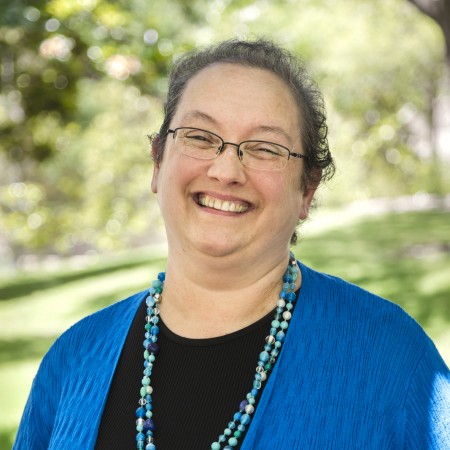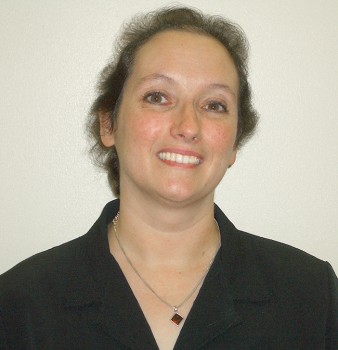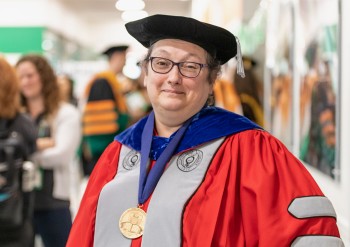Ph.D. - Developmental Psychology
The Ohio State University - 1995

Karen Huxtable-Jester
Professor of Instruction - Department of Psychology
Research Interests: Developmental-social-educational psychology of teaching and learning; science of caring that students learn
Professional Preparation
M.S. - Clinical Child Psychology
The Ohio State University - 1992
The Ohio State University - 1992
B.S. - Psychology
University of Massachusetts at Amherst - 1986
University of Massachusetts at Amherst - 1986
Research Areas
Research Interests
Involving students in conducting research is the most effective way to communicate to them not only the excitement and joy of the process of scientific discovery, but also the obstacles and frustrations that often must be overcome. I am very interested in continuing to investigate the science of teaching and learning, particularly in terms of processes of change, including the role of self-reflection processes in bringing about change in teachers' personal belief systems and teaching practices.Publications
Cruz, L., Huxtable-Jester, K., Smentkowski, B., & Springborg, M. (2021). Place-based educational development: What Center for Teaching and Learning spaces look like (and why that matters). To Improve the Academy: A Journal of Educational Development, 40(1), 75-104. 2021 - publications
Additional Information
PERSONAL STATEMENT
I earned a B.S. in Psychology from the University of Massachusetts at Amherst (1986), a Masters in Clinical-Child psychology from the Ohio State University (1992), and a Ph.D. in Developmental psychology from the Ohio State University (1995). I began teaching in 1988, and have taught a wide variety of courses in Connecticut at the University of Bridgeport and Saint Joseph College, and in Ohio at the Ohio State University and Central Ohio Technical College. I have been teaching at UTD since 2000.In all of my courses, my goal is to bring about change in how students think, not only about the topics addressed in the discipline, but about themselves and the way they perceive the world. To achieve this kind of deep and lasting change students must be challenged to question their current level of understanding and see that they must revise it in terms of new information by evaluating assumptions, evidence, and conclusions. I incorporate considerable class discussion into my lectures in order to elicit students’ ideas, to promote active involvement with the material, and to assess students’ ability to apply course concepts. I want students to learn not just what we think we know in the discipline but how we came to those conclusions, how we continue to re-examine the evidence for those conclusions, and how we gather evidence to generate new knowledge.
Students need opportunities to think, to write, to read original research, to discuss ideas, and to practice reasoning and problem solving using skills that come from the realization that their old ways of thinking may have been inadequate for these tasks. It is these skills that enable students to become thoughtful and informed consumers of research in psychology, and to continue to learn long after the course is over.
News Articles
Good Teaching Focuses on Relevance, Regents' Award Winner Says
 Dr. Karen Huxtable-Jester, recipient of the Regents’ Outstanding Teaching Award, says good teaching starts with one thing – finding joy in connecting with students. Huxtable-Jester has taught nearly 8,000 students since 2000, when she arrived at UT Dallas, where she is a teaching support coordinator and a senior lecturer in the School of Behavioral and Brain Sciences. She says communicating the relevance of the course material well is important for maintaining a student’s interest and motivation. With a repertoire of seven courses ranging from educational psychology to research methods to family violence, Huxtable-Jester strives to make her subjects relevant for students.
Dr. Karen Huxtable-Jester, recipient of the Regents’ Outstanding Teaching Award, says good teaching starts with one thing – finding joy in connecting with students. Huxtable-Jester has taught nearly 8,000 students since 2000, when she arrived at UT Dallas, where she is a teaching support coordinator and a senior lecturer in the School of Behavioral and Brain Sciences. She says communicating the relevance of the course material well is important for maintaining a student’s interest and motivation. With a repertoire of seven courses ranging from educational psychology to research methods to family violence, Huxtable-Jester strives to make her subjects relevant for students.
Senior Lecturer Named to Prestigious UT System Teaching Academy
UT Dallas teaching advocate Dr. Karen Huxtable-Jester recently was inducted in the UT System Academy of Distinguished Teachers. Created to recognize exceptional educators at the System’s eight academic institutions, the academy serves as a System-level advocacy group dedicated to enhancing teaching, fostering innovation in the classroom, and promoting interdisciplinary perspectives on education.“Karen possesses vast knowledge about teaching. She knows a great deal about how students learn, as well as formal education, educational theory and the psychological roots of education,” said Dr. John Sibert, associate professor of chemistry at UT Dallas.
Commitment to Students, Craft Defines Newest Piper Professor
 Few people have influenced how teachers teach at The University of Texas at Dallas as much as Dr. Karen Huxtable-Jester.
Few people have influenced how teachers teach at The University of Texas at Dallas as much as Dr. Karen Huxtable-Jester.A senior lecturer on the faculty of the School of Behavioral and Brain Sciences (BBS) for two decades, Huxtable-Jester has accumulated a catalog of accolades from within UT Dallas and beyond. In May, she added to that list with her selection as a 2019 Piper Professor by the Minnie Stevens Piper Foundation, which honors the best professors across Texas.
The award, established in 1958, recognizes 10 educators annually for their dedication to their profession and for their outstanding academic, scientific and scholarly achievement. The foundation’s emphasis is to ensure access to education for financially limited but worthy students at Texas colleges.
“Success for every student is a goal that is well within our reach,” Huxtable-Jester said, “and compassionate, responsive teaching will help us to achieve that goal.”